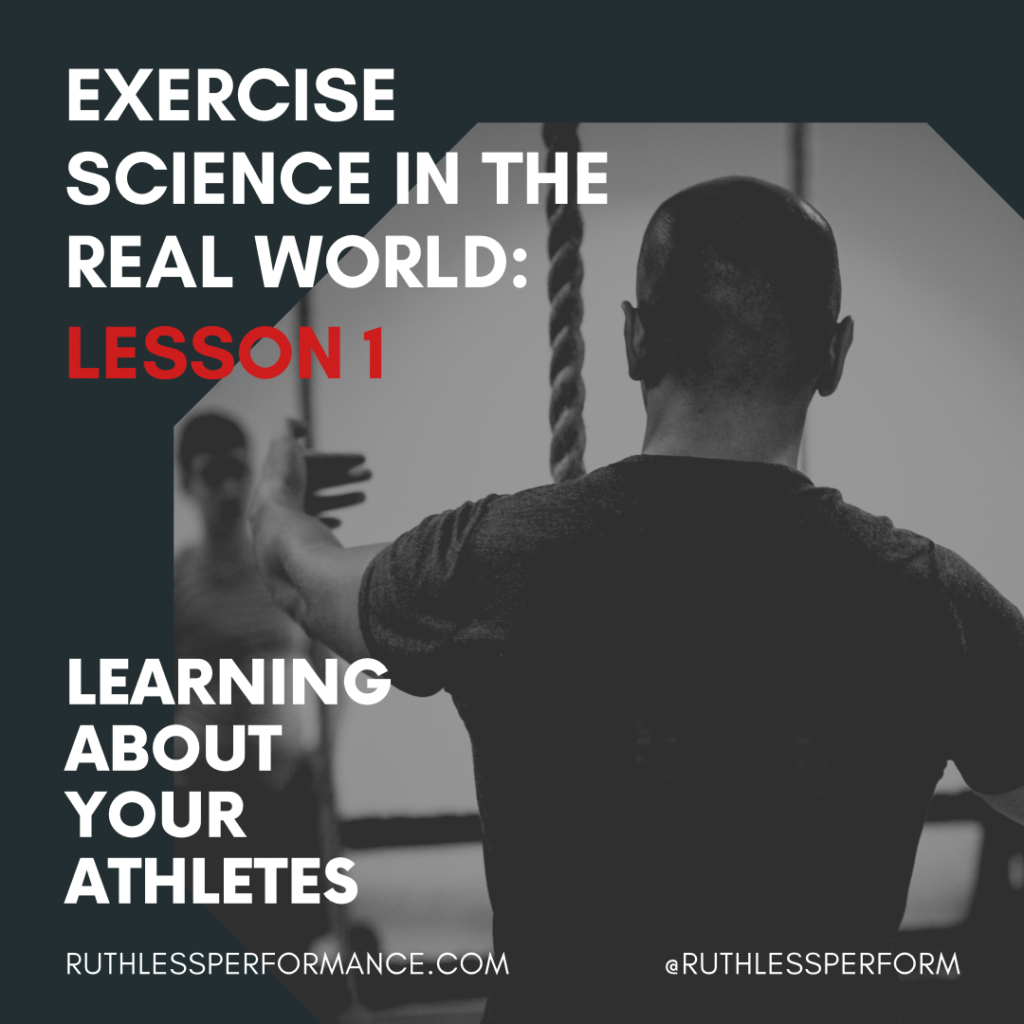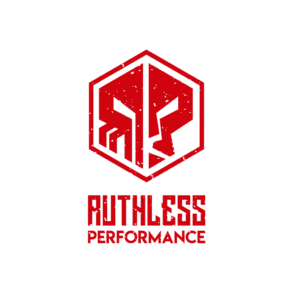**Editor’s Note: This series comes from current Ruthless Performance Intern and Assistant Strength & Conditioning Coach, Keith Lowery. Keith is a senior exercise science student at Bloomsburg University, which has an affiliate agreement with Ruthless. As senior exercise science students complete their 4-year program, they are required to complete an arduous semester-long internship. These lessons will be presented weekly as interns gain real-world experience in the realm of strength and conditioning during crucial on-the-job education.**
Exercise Science in academia covers a wide variety of career choices opening avenues for students to follow a strength and conditioning path, physical therapy path, or exercise physiology path to name some. This is done by covering as many general topics as possible when it comes to anatomy and physiology as well as exercise. Elective classes can be taken to narrow down the material to the avenue you choose to go into. This knowledge base is a great starting point, but the real challenge is being able to apply it to the real world in your own way.
This knowledge base is a great starting point, but the real challenge is being able to apply it to the real world in your own way. Click To TweetLearning About Your Athletes
I myself am going through that process right now as I work with athletes in the field of strength and conditioning. Coaching is something that I have enjoyed since high school where I worked with the junior wrestling team in my hometown. One of the most important keys to success I have found in the exercise science field is learning your athletes. Something simple as this can dictate whether or not your athletes progress through your training programs.
Find What Motivates Your Athletes
All athletes have varying motivations to succeed, it is your job as a strength and conditioning coach to find what drives your athletes to improve. Athletes have both internal and external motivations to succeed in their sport. External motives can be defined as the athletes’ appearances to others. Example: if they succeed they can become more popular in their school. Internal motives are defined as one’s self satisfaction. An athlete may play a sport because they enjoy it or because they think it challenges them. As a strength coach is imperative to find what these motives are and remind your athletes of these as they train. Especially when an athlete comes into a training session tired and unmotivated, reminding them of why they do it can dictate whether they have a solid lift or not.
All athletes have varying motivations to succeed, it is your job as a strength and conditioning coach to find what drives your athletes to improve. Click To TweetLearn Your Athletes’ Personalities
All athletes take to criticism differently in addition to how you motivate them. Observe your athletes to see if they are the loud outspoken voice in the room or if they are the quiet, more introverted person who comes in, gets their workout in then leaves. It is important to always bring energy into every training session no matter who the athlete is, but it must be geared more to how the athlete operates. If an athlete is quiet and introverted you do not want to overwhelm them. Allow them to work through difficult exercises themselves as they can see you telling them over and over “ you can do it” as a distraction while they are trying to concentrate. On the contrary, many extroverted athletes need that external motivation of you as a coach telling them that they can do it for them to perform the lift to their best ability.
Observe What Exercises Your Athletes Like and Dislike
When observing an athlete train, it’s important to take notes on what exercises they excel at along with which ones they do not. It is ingrained in the strength coaches’ head that you must improve all your athletes weaknesses. I have found this can be hard for athlete’s to understand because the exercises they must perform to improve their weaknesses are ones they do not enjoy. By drilling your athletes over and over with these exercises, it can kill their motivation. It is imperative to add in exercises to their program that play to their strengths. This keeps the training fun and keeps them motivated to keep working.
Be Patient
Some athletes take time to open up, be patient and be personable. Explain why you are having them do specific exercises, have conversations with them regarding things other than their sport or of the training session. Some athletes may seem quiet when you first start training them but may become more extroverted after a few weeks. Making it a must to change how you coach them.
That is why you have to learn your athletes.

